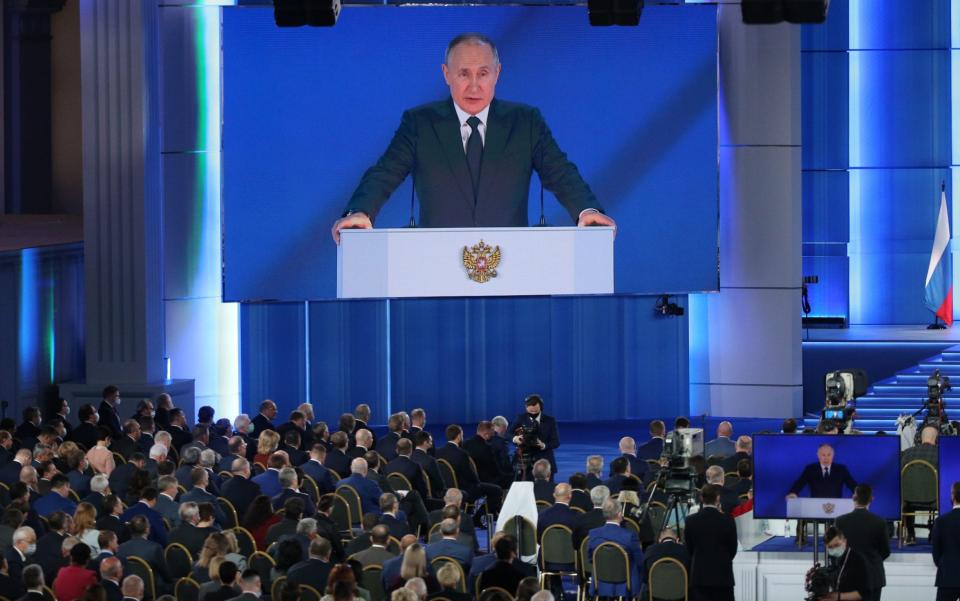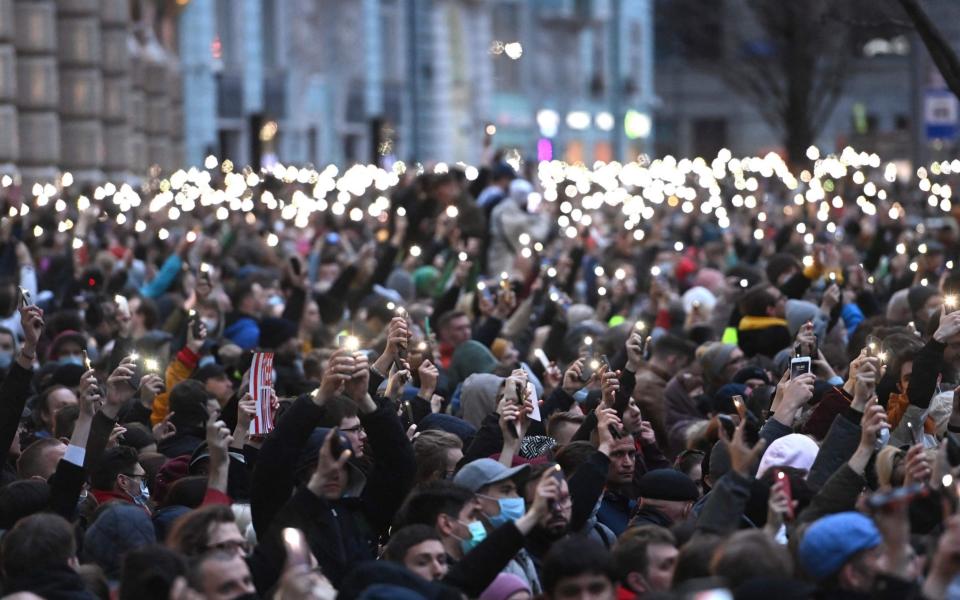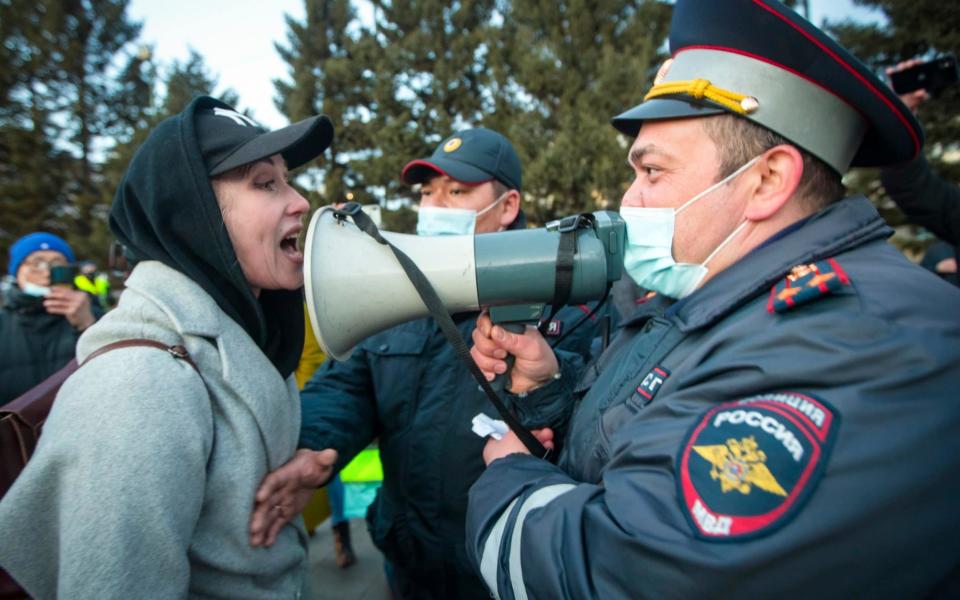Thousands of Russians take to the streets in support of Alexei Navalny

Thousands of supporters of jailed opposition figure Alexei Navalny took to the streets across Russia on Wednesday evening in a final bid to secure his freedom amid reports that he was in a “critical” condition.
Hundreds of demonstrators packed the main thoroughfare across from the Kremlin, chanting “Navalny” and “We need changes!” just a few hundred meters from Russia’s seat of power.
Watch: Free Navalny protest marches erupt across Russia
Black-clad riot police put on a formidable show of force, with hundreds of officers in full gear lining the curb throughout the capital, but largely stood by and watched, a significant contrast to the violence of previous demonstrations.

Moscow police said some 6,000 people took part in the protest in Moscow, reported the Interfax news agency.
Russia’s police tends to under-report the turnout at opposition rallies. Other estimates on social media put the figure higher at 10,000 but attendance was hard to estimate accurately because protesters were spread across several parts of the city.
However, the numbers appeared to fall short of the organizers’ hopes to match the crowds of tens of thousands seen earlier in January, the largest demonstrations in the country in years.
The protests came as a group of UN human rights experts called on Russia to allow Mr Navalny to be medically evacuated abroad, saying they believed his life was in "serious danger".
The outspoken Kremlin critic has been in prison since he returned to Moscow in January following several months in Germany where he was evacuated for emergency medical treatment after being poisoned with Novichok nerve agent on a Russian flight last summer.
Mr Navalny went on hunger strike three weeks ago after the prison administration refused to let him see a civilian doctor as he began to feel intense pain in his back and numbness in his legs and was finally moved to a prison hospital on Sunday.
“Alexei's health has sharply deteriorated, and he is in a rather critical condition,” Vladimir Ashurkov, a close Navalny ally, told AP.
He has been kept in harsh conditions in a high-security penal colony and "denied access to adequate medical care", conditions that may amount to torture, the UN experts said in a statement.

In a major annual speech earlier Wednesday, however, President Vladimir Putin warned the West against any interference, threatening a “swift and tough” response for any country that crossed unspecified “red lines”.
“Anyone who threatens the core interests of our security will come to regret it like they never regretted anything,” he said in a 90-minute speech in Moscow.
Despite condemnation from abroad, Russian authorities have escalated their crackdown on Mr Navalny's allies and supporters since his return.
In Moscow, Mr Navalny spokeswoman Kira Yarmysh and Lyubov Sobol, one of his most prominent associates, were detained by police in the morning before the demonstrations had even begun.
Members of Mr Navalny's anti-corruption foundation, which prosecutors are seeking to designate an "extremist" organisation, said the protests were a “final battle” with the Kremlin and could be Russia's last rallies for years to come.

For many attending, it wasn’t just about Mr Navalny’s plight, but about the state of Russia more broadly.
“Alexei is the person who has put the spotlight on the problems that have been in Russia for years like corruption. We can’t just stand by and do nothing,” said Leon, 35, an English teacher in a village 500 km away from Moscow.
“I’m here because this is now the only way to express what we think about the government. Our courts and penitentiary system needs a complete overhaul,” added Olga, 46.
The crowds who braved explicit government threats of violence were somewhat perplexed that the police were largely peaceful. Just 18 arrests were reported in Moscow.
Thousands of protesters, mostly in their 20s and 30s thronged the city’s central area, lined with luxury stores and riot police, to clap and shout “Free Navalny!”, their chants echoing against the streets’ 19th-century mansions.
“Anyone can be in Navalny’s shoes. I’m here not just for Navalny but for human rights,” said Kristina Yakovleva, a 21-year-old undergraduate student

Demonstrations took place in dozens of cities across the country, including in Siberia's Novosibirsk, Irkutsk and Tomsk.
More than 1,000 people were detained across the country, according to OVD-Info, a group that monitors protests and detentions.
In a speech earlier on Wednesday, Mr Putin made no mention of Mr Navalny, nor did he make a major foreign policy announcement that many were expecting.
Aside from issuing a stark warning to the West, saying that “Russia’s response will always be swift, asymmetrical and tough”, he devoted most of this speech to domestic issues such as Covid vaccines.
The rouble firmed after Mr Putin's speech, with markets interpreting it as not escalating tensions with the West.
Watch: Putin warns foreign powers against crossing Russia’s ‘red lines’

 Yahoo News
Yahoo News 